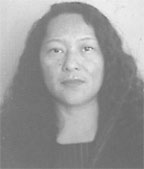Minister of Amerindian Affairs Pauline Sukhai acknowledged yesterday that some Amerindian communities lack a clear understanding of the LCDS but insisted there were no language barriers.

The minister stressed that English is the first language of this country’s indigenous communities, and suggestions about whether some Amerindians understood the Low Carbon Development Strategy (LCDS) presentations can be viewed as insulting.
“…All Amerindians speak English, English is our first language and Amerindians are no different to any other Guyanese. I will not want to insult the Amerindians by saying they cannot understand the presentations done on the LCDS,” Sukhai charged yesterday in response to a question during a press briefing at her ministry.
“Can I have my say? I allowed you to have your say,” Sukhai told the reporter and she continued that it was insulting to the indigenous community to suggest that some persons could not follow the presentations. Sukhai appeared peeved when a question was posed to her about whether the LCDS was simply not understood by some indigenous communities. She said the presentations were clear and stressed that in some villages, translators were provided for villagers who spoke other languages. She added that translators were engaged in many instances.
Still on the issue, she said the LCDS cannot be translated into the indigenous languages because the languages are not written. She said the target audience of any such translation would not be able to read it. Sukhai added that the National Toshaos Council has plans to expand consultations to many Amerindian villages.
The question of some leaders who currently oppose the LCDS came up and the minister stressed that she has no reason to intimidate Amerindian leaders who disagree with the strategy in its current form and yesterday dismissed allegations involving her ministry as “highly unfounded. …Everyone is open to comment on this, it’s an open field day,” Sukhai said.
Sukhai said her ministry operates on the principle of respect, noting that people are free to say what they like. She said the issue of land rights and demarcation which “APA has raised” is not new and had been raised since the consultations commenced. She said the Amerindian Peoples Association (APA) is behaving some nine months after as if this particular issue is fresh on the agenda.
Sukhai held a press briefing yesterday to report that her ministry has expended 20 per cent of its budget so far, which amounts to around $50 million, and is currently awaiting approval from the Finance Ministry and Tender Board to proceed with purchasing capital items. The purchases would include ATVS, outboard engines, chainsaws, tractors and brush cutters among other things.
According to her, the ministry has developed an Amerindian Resident Management Plan to upgrade services currently being provided at the Amerindian hostel. Sukhai said the plan is aimed at improving the efficiency and operations of the hostel. She said they have also formulated a management plan for the health and social welfare of Amerindians. This plan, she said, gives a comprehensive outline of the work the ministry intends to do in these areas and is aimed at streamlining current services.
Sukhai said the ministry will take the lead in interventions in specific areas which will target trafficking-in-persons, cervical cancer and tuberculosis. She said the ministry received two reports of trafficking-in-persons last year, reports which were “not exactly trafficking”.
Community development remains a focus of the ministry, she added. She said too that the ministry has a demarcation and titling plan which will guide them in completing the process. In December 2009, the ministry received $160 million in a presidential grant for that year and to date it has expended 44% of the disbursement in a total of 31 villages, according to Sukhai.



